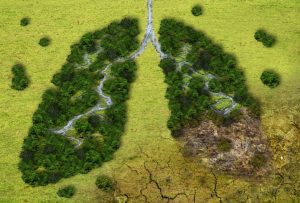COP26’s first week included announcements for energy, climate education, the ocean and nature, and land use. Sustainable East Midlands policy officer Amy Kopyrko provides the announcements so far, and an overview of what to look out for in week two.

On Thursday, named Energy Day in the conference, more than 190 parties signed new measures to deliver on the phase-out of coal. The Global Coal to Clean Power Transition Statement commits signatories to:
The UK also launched the Just Transition Declaration, which commits nations to ensuring the move away from coal creates green jobs and opportunities for society.
On Friday, 23 countries made national climate education pledges, including net zero schools and putting climate at the heart of the curriculum.
Saturday was Nature and Land Use Day, where commitments were made on agricultural reform, innovation and sustainable production.
Some 45 nations signed a new Policy Action Agenda and the first of polices announced included the UK’s aim of engaging 75% of farmers in low-carbon practices by 2030.
The policy has been designed to create a food system that is low-carbon and deforestation-free, which also supports farmers and the wider food chain to create less waste and boost resource efficiency.
In the private sector, more than 95 businesses have committed to delivering “nature-positive” operations by 2030. Businesses involved include Severn Trent Water, the Co-op and National Grid.
What’s to come in COP26 week two?
Monday’s events will focus on how we will adapt our economies and societies to prevent climate change and create a more resilient future. This will include the impact of extreme weather, environmental degradation and rising sea levels.
Tuesday’s event will examine the ways in which girls, women and marginalised people are disproportionally impacted by the effects of climate change, and will focus on the importance of their leadership when driving solutions.
Science and innovation are integral to providing the solutions that businesses and governments will need to tackle the climate crisis.
The day will showcase clean energy solutions and an event to watch out for is Accelerating innovation: Co-operation for a Net Zero Future from 3.30-5.30pm.
Transport Day, on Wednesday, will focus on creating a mass market for zero-emission vehicles, as well as looking at harder-to-abate industries such as aviation and shipping.
On Thursday, COP26 will focus on partnerships between governments, the private sector, cities and regions in the built environment, with collaboration identified as key to setting and reaching climate targets globally.
A panel discussion will explore how to deliver and enable a zero-emission, efficient and resilient built environment, and how local governments can bridge the policy gap.
COP26 will draw to an end on Friday when any outstanding negotiations between nations are wrapped up.